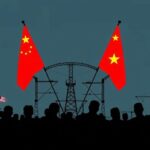Strengthening Ties: Bukele Concludes Successful Visit to Argentina
President Nayib Bukele of El Salvador has concluded an official visit to Argentina, where he was hosted by President Javier Milei. The visit focused on fostering cooperation in security, energy, and economic sectors, resulting in several key agreements. Both leaders share similar political ideologies, particularly in their approaches to governance and security measures. The visit also included significant discussions about Bitcoin and strategic investment opportunities between the two nations.
The recent visit of El Salvador’s President Nayib Bukele to Argentina has concluded, marking a significant advancement in bilateral relations between him and Argentine President Javier Milei. This visit, Bukele’s inaugural official trip to Argentina, aimed to strengthen cooperation in vital domains such as security, energy, and economic development. Upon his arrival, Bukele was warmly received at Casa Rosada, Argentina’s executive mansion, where he and Milei partook in a bilateral dialogue and subsequently signed a “joint declaration” along with several agreements concerning cultural exchanges, air transportation, nuclear energy, sports, and cultural heritage. Further enhancing the cooperation dialogue, Bukele met with Argentina’s Foreign Minister Diana Mondino. Together, they inaugurated a high-level business forum involving representatives from key industries in both nations, particularly focusing on sectors such as software, technology, manufacturing, and food and beverages. They presented Argentine investment opportunities aimed at enticing Salvadoran investments while introducing a targeted Argentine trade mission to El Salvador set to commence in the automotive sector by the end of 2024. Both leaders exhibit parallel views grounded in a stringent “anti-caste” rhetoric, expressing disdain towards human rights organizations, which they believe distort their intentions. This alignment was noticeable during the 79th United Nations General Assembly in New York, where both critiqued UN policies—Milei viewing them as influenced by a “socialist agenda” and Bukele branding them as reflective of a “less and less free” world. Additionally, Milei has openly expressed admiration for Bukele’s radical security measures, which have included significant restrictions on individual freedoms for alleged gang members, addressing a chronic security crisis in El Salvador characterized by profound violence and unrest. A notable aspect of Bukele’s security policy is the rapid development of a maximum-security prison for gang members, enhancing his government’s reputation for a tough-on-crime stance. To underscore this governmental partnership, Minister of Security Patricia Bullrich has publicly acknowledged the influence of the “Bukele model” in Argentina’s ongoing efforts against drug trafficking, facilitated by direct lines of communication established between Salvadoran and Argentine officials. Remarkably, Bukele received state honors from President Milei, symbolizing the deepening relationship between the two nations. The visit also included discussions surrounding Bitcoin, after which Bukele met with Argentine Senate members, including Senate President Victoria Villaruel, discussing the integration of Bitcoin as legal currency in El Salvador. Villaruel remarked on the productive conversation regarding cryptocurrency regulation in El Salvador, highlighting the innovative nature of their discussion. In conclusion, Bukele emphasized the success of his crime reduction efforts, stating, “The issue of security is, of all the things we have done, the one that is best known internationally…when we see images of these countries on television, we know that we were living in an even more unsafe country.” This sentiment reflects the transformative shift in public safety under his administration, where he noted the stark decline in homicide rates from a staggering 103 per 100 people, exemplifying the substantial changes in public safety in El Salvador. During this visit, three principal agreements emerged: cooperation in cultural heritage, establishing a common airport site to enhance bilateral air connections, and a memorandum for collaboration in the nuclear sector between the respective national atomic energy commissions. Additional agreements covered sports collaboration, water and irrigation cooperation, and cultural partnerships between national libraries. Overall, President Bukele’s visit to Argentina heralds a promising partnership, focused on mutual growth and security measures, which both nations anticipate leveraging to tackle their current challenges and foster further collaboration.
This article chronicles the recent visit of El Salvador’s President Nayib Bukele to Argentina, where he met with President Javier Milei. The backdrop of this visit is significant, highlighting both leaders’ mutual interests in enhancing cooperation across various sectors, including security, economic investment, and cultural exchanges. Their joint ideological stance against traditional political establishments and shared disdain for certain international organizations indicates a broader strategic alignment between the two countries, especially regarding security policies and economic initiatives. The discussion around Bitcoin reflects the growing relevance of digital currencies in international economic discourse, highlighting El Salvador’s pioneering position in this arena and Argentina’s interest in modernizing its financial systems.
In summary, President Nayib Bukele’s visit to Argentina signifies a pivotal moment in strengthening bilateral relations between El Salvador and Argentina. The agreements and dialogues established during this two-day engagement promise enhanced cooperation in key sectors essential for both nations’ growth. The ideological and practical alignment between Presidents Bukele and Milei underscores their commitment to pursuing effective security measures and fostering economic initiatives that can potentially reshape the landscape in their respective countries, marking a new era of collaboration in Latin America.
Original Source: www.agenzianova.com








Post Comment